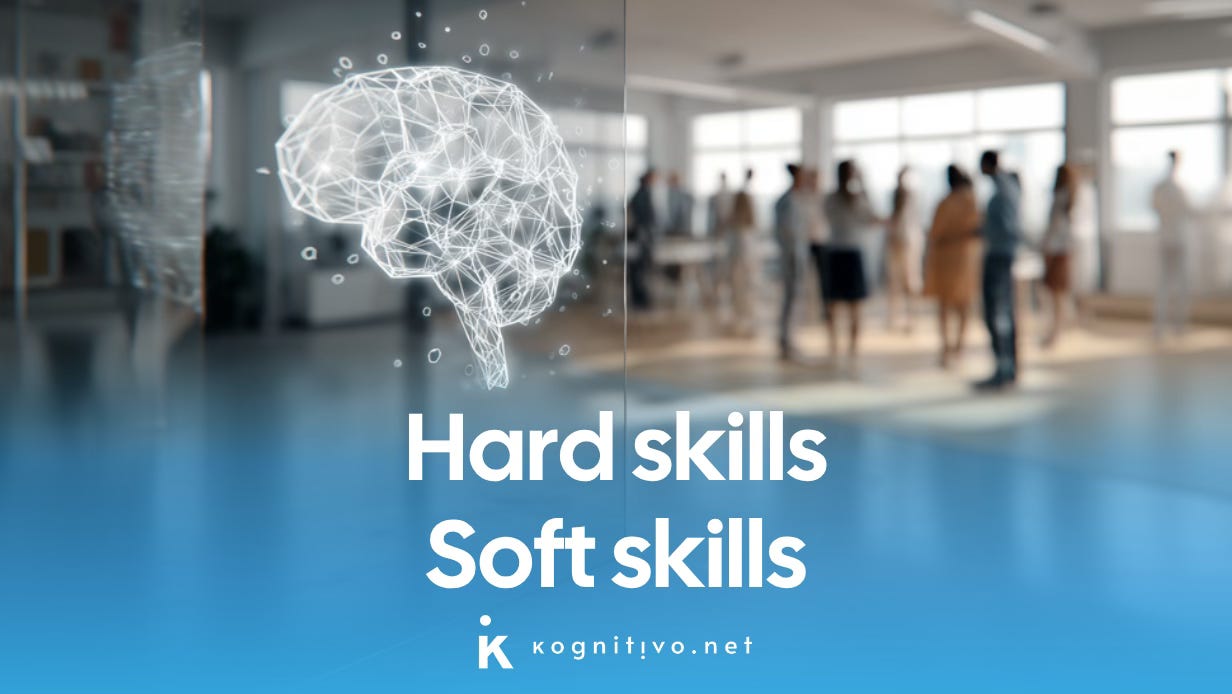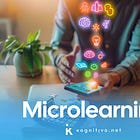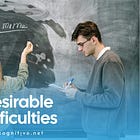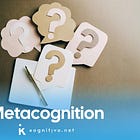The science of learning hard and soft skills
You can memorize equations but not empathy. Hard skills fill your CV but it's often soft skills that lead to success. Science shows why we learn them differently. Spoiler: language learning is a mix.
How many books on leadership make you a leader? Is there a learning app for empathy or a course that guarantees better judgment? Can an online course really make you better at handling difficult coworkers? You already know the answer.
Theoretical knowledge offers direction and insight, but it doesn’t automatically translate into behavior. These skills play by different cognitive rules than maths, physics, coding or medicine.
Traditional education has long favored hard skills and neglected soft ones. However, research shows that soft skills are a strong predictor of success in life, often rivaling if not surpassing technical knowledge. With AI automating more of the “hard” work, we can expect that gap to grow.
But how do we learn each type? Hard skills depend on memory: the brain’s ability to store and retrieve explicit information. Soft skills depend on experience: the brain’s ability to detect patterns, interpret context and act appropriately amid uncertainty.
So what’s the best way to learn each? And is the divide as clear as it sounds? Let’s see what the science says.
Know-what and know-how… but also know-when
Cognitive science says knowledge comes in two flavors.
Know-what (declarative knowledge) is about facts, concepts and rules. You can explain it, write it down and test it.
Know-how (procedural knowledge) is about doing. An expert dancer might pull off a moonwalk perfectly yet struggle to teach it step by step: they have the know-how, not necessarily the know-what.
OK, so hard skills are declarative knowledge and soft skills are procedural knowledge, right? Not so fast. Most hard skills include procedural knowledge too. A mechanic, nurse or IT specialist doesn’t just memorize steps: they execute them smoothly. Even calculating the result of a division or a square root is procedural knowledge.
In fact, most vocational training programs are focused on developing the kind of procedural hard skills that make you a professional expert in a certain area.
Soft skills require a third layer:
Know-when (conditional knowledge) is the judgment of when and under what conditions to use a specific skill or strategy. In other words, it’s about acting at the right time and in the right way. Giving feedback, leading a meeting, motivating a team or calming a customer all depend on it.
You probably haven’t heard about conditional knowledge because it’s not just “a third type of knowledge”, but rather a metacognitive function. It requires retrieving facts (declarative knowledge) and executing skills (procedural knowledge) simultaneously, mediated by highly complex executive control processes. In essence, it’s basically the two types of knowledge working together to manage themselves.
As a metacognitive function, its relevance is backed by scientific research. However, because it’s not a separate type, conditional knowledge hasn’t really made it into the mainstream: there isn’t even a Wikipedia page for it.
Hard skills: memory and automation
Hard skills are technical, measurable abilities: coding, maths, budgeting, biology, data analysis, chemistry, surgery or playing a musical scale. They require precision, consistency and rule-following.
Traditional education has focused almost entirely on them but usually in the least effective way. Rote repetition and rereading don’t build lasting skill. If you follow Kognitivo, you already know that cognitive science points to something better: desirable difficulties.
The golden triad of spaced repetition, retrieval practice and interleaving are the core desirable difficulties to focus on when developing hard skills: space out your reviews, test yourself often and mix topics so your brain learns to discriminate between them.
These methods reshape memory traces instead of just refreshing them. But don’t forget about generation, transfer or delayed feedback. Conditional knowledge also plays an important role in hard skills: experts know when to apply which rule or method, but memory (long-term declarative knowledge) remains the foundation.
The final step for any hard skill is what scientists call proceduralization: when rules become reflexes. Think about learning to drive: at first you juggle mirrors, pedals, and panic. Then, one day, you’re singing along to music and changing lanes automatically.
Proceduralization is the shift from declarative to procedural knowledge. The theory turns into instinct and cognitive load drops. That’s what mastery feels like.
Soft skills: deliberate practice and context
Soft skills are behavioral and interpersonal abilities: communication, empathy, adaptability, teamwork, leadership. They’re what make workplaces functional and relationships sane. Memory still matters, but it’s not the main engine.
If conditional knowledge was important but not the main character regarding hard skills, with soft skills the situation is different. The complexity, nuance and diversity of the contexts in which soft skills are required makes knowing when and how to act in a certain way or another the most relevant ability to develop soft skills. But how do we achieve that?
Progress depends on deliberate practice (DP): focused repetition with clear goals and feedback. You refine your timing, tone and reactions the same way an athlete refines footwork, through repeated exposure, reflection and correction.
The concept of deliberate practice was introduced by cognitive scientist K. Anders Ericsson and colleagues in 1993 to underline the idea of expertise as the outcome of structure, goal-oriented, feedback-rich practice, and not innate talent. Deliberate practice builds conditional knowledge: knowing when to act and when to hold back.
The cognitive principle of transfer appropriate processing (TAP) suggests that we learn best when practice feels like the real thing (i.e. when retrieval context closely matches the encoding context). For soft skills this means: training should mirror real conditions, including stress, stakes and social dynamics.
If someone needs to learn how to manage conflict or stay calm under pressure, practice should recreate those pressures. A mismatch (calm classroom versus tense boardroom) kills transfer. That’s why simulations and role plays work: they teach your brain what performance actually feels like.
Does this mean that we can neglect memory or that we should give up on theoretical approaches when working on our soft skills? Certainly not: theory still matters. In the article about microlearning I mentioned how a recent 2025 study has shown that microlearning interventions also support the development of soft skills. The nuance is in how they support it rather than drive it.
Being knowledgeable about different strategies on how to act in different social environments certainly helps navigating conflict and communication, but it won’t make your actual behavior magically improve. There’s hardly a way around deliberate practice with an emphasis on transfer appropriate processing. DP with TAP, please.
As with the proceduralization of hard skills, the more you practice, the faster soft skills will become automatic. That frees up mental space for control: judgment, empathy, adaptability and metacognition. The irony is that becoming more thoughtful starts with making some actions thoughtless.
The hybrid case: language learning
Language learning mixes both worlds. Grammar and vocabulary are hard-skill territory: rules, structures and definitions. Conversation, tone and interaction are soft-skill territory: timing, nuance and communication. This dichotomy is usually referred to in language learning literature as fluency versus accuracy.
You can memorize every tense and still freeze in conversation if your learning never leaves the page. This is also why most language learning apps ultimately fail at making you speak the language naturally: they focus only on hard-skill drills, not soft-skill fluency.
Interestingly, modern language teaching has found a way to measure the soft-skill side of communication. The Common European Framework of Reference (CEFR) organizes language proficiency around communicative competence: what you can actually do with a language. From A1 (introducing yourself or asking for help) to C2 (resolving conflict diplomatically or interpreting nuance), each level describes real-life actions, not just vocabulary size or grammar knowledge.
The brilliance behind the CEFR is that communicative skills are universal across languages, even though the grammar and vocabulary each language uses to perform them are not. CEFR turned the soft side of language into something measurable.
Let’s make it practical: how to learn hard and soft skills?
For educators and instructional designers: effective learning aligns method with mechanism. Hard skills thrive on memory-building strategies; soft skills demand experience, feedback and realistic context. Don’t lecture empathy: let people live through it in actual social contexts. Design learning that mimics the situations where the skill will actually be used.
For learners: alternate study with doing. Drill when precision matters, but seek messy, unpredictable situations when adaptability does. Study the manual, then step into the cockpit. Memorize the script, then improvise. Learning works best when you teach the brain the way it naturally learns: through memory for facts, and through practice for behavior.
Why traditional education gets it wrong
Let’s not forget that strategies that benefit hard skills are also important for soft skills and vice versa. Unsurprisingly, deliberate practice is the best way to develop procedural hard skills. And memory work is also key for soft skills: knowing the facts and context of a negotiation is, more often than not, the key to success. The important question is which of these strategies plays a more prominent role in developing hard or soft skills.
In any case, it’s important to bear in mind that our perception of what learning and education means is strongly influenced by the model of hard skills. Schools and universities have spent decades perfecting how to teach maths, physics or grammar because hard skills are easier to measure. Standardized tests reward what can be graded: facts, formulas and tidy answers.
This is also why the limited soft-skill education we receive in school is often boiled down to their “hard-skill components” without really exploring soft-skill territory. For instance, we may be asked to “define decision-making” or “list the criteria for good judgment,” yet we aren’t required to make decisions or demonstrate good judgment.
But research consistently shows that soft skills are strong predictors of long-term success: better career outcomes, higher adaptability and even improved well-being. The general lack of soft skill training leaves us with a majority of people who can analyze a spreadsheet but can’t navigate a team conflict.
And in a world where AI can crunch numbers and write texts faster than any human, it’s the human skills that will set us humans apart.
Keep learning
Prompt suggestions. Always ask follow-up questions:
I want to improve both hard and soft skills in my learning routine. Can you help me design a weekly plan that balances memory-based study (for hard skills) with deliberate practice and feedback (for soft skills)?
Explain “know-what,” “know-how,” and “know-when” in simple terms, then help me identify which one I’m currently neglecting the most in my learning or work.
Act as a teacher and test me using retrieval practice on “the cognitive science of learning hard and soft skills.” Ask me 6 questions, one at a time, only continuing when I answer. Make them progressively harder.
Further reading
📖 The making of an expert: The scientist who coined the concept of deliberate practice shows how top performers are made, not born. Ericsson’s research dismantles the myth of talent and shows the science behind real, measurable mastery in any field. The article is very accessible and really juicy.
📑 The power of soft skills beyond academic achievement: This long but accessible article from 2025 sums up the research on the topic of soft skills and their importance. It’s a great next read after this article!







Working on your Personal RnD is crucial a s essential for your survival!